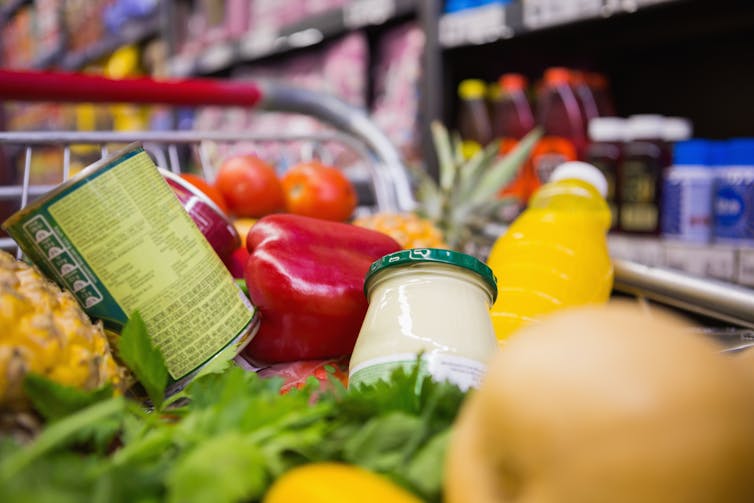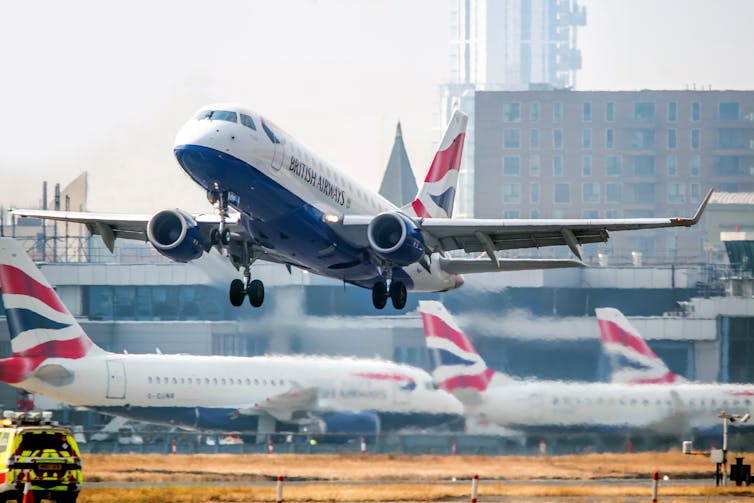Without changes to people’s behaviour and lifestyles, it will be impossible for the UK to reach net zero emissions by 2050. But the government is failing to put in place the conditions that would enable this to happen – or even recognise its relevance in cutting emissions and meeting climate targets. Its laissez-faire approach of simply “going with the grain of consumer choice”, according to a recent report, has no chance of bringing about the urgent changes needed.
A House of Lords inquiry assessed the role of public behaviour in meeting climate and environmental goals. The report drew on evidence from leading experts on behavioural science and social change, as well as submissions from a wide range of organisations, including Tesco, Natural England and Cycling UK.
Among the criticisms levelled at the government were accusations that it places too much faith in unproven technologies to fix the climate, and is reluctant to communicate to the public the scale of social change needed to create a low-carbon society. The varying remits of different government departments charged with helping the public change their polluting behaviour were characterised as a “muddle” and “inadequate” to the task. In some instances, government actions have pushed people away from low-carbon choices, like offering a tax cut for domestic flights just before 2021’s UN climate summit in Glasgow.
Perhaps most uncomfortable for a government that has elevated economic growth as its foremost priority, the report stresses the need for absolute reductions in many of the commonplace activities that are driving the climate crisis. This includes people buying less of the things with sizeable environmental impacts, like long-haul flights, beef and products that use a lot of resources, such as fast-fashion clothing and electronics.
Low-carbon lifestyles
The government’s squeamishness around supposedly interfering in people’s lives or restricting personal freedoms is at the heart of a lot of climate policy inertia. Boris Johnson’s government swiftly withdrew an earlier report on options for encouraging low-carbon behaviour change that it had itself commissioned, out of fear that its recommendations, which included additional charges on frequent flyers and high-carbon foods, could be interpreted as dictating consumer behaviour.

Reality is more complex. There is little choice involved in lacking the money to insulate an energy-inefficient home. Nor is there much freedom in struggling to cycle on dangerous roads without dedicated bike lanes, or having to pay much more to travel by train compared with flying.
It is for this reason that the House of Lords report urges the government to use taxes, regulations and infrastructure to level the playing field in favour of greener lifestyles, especially when it comes to travel, heating, diet and the products we buy. One of the few examples cited in the report of the government being assertive in its approach to behaviour and lifestyle change is the ban on new petrol and diesel cars by 2030 – a clear constraint on people’s choices, but one that now appears to be accelerating the uptake of electric vehicles.
Measures for promoting sustainable lifestyles would do well to learn from successes and failures in other areas, such as smoking, obesity and the national response to the pandemic. Health experts stressed in the report that efforts to reduce smoking in the UK have worked precisely because they have involved a range of policy interventions, including raising taxes on tobacco, laws restricting smoking in public spaces and a clampdown on advertising, as well as carefully coordinated and well-timed efforts to engage with the public about these changes. The UK’s success in reducing smoking rates would not have happened with voluntary measures alone.
The importance of fairness
The government’s advisers, the Committee on Climate Change, found that about a third of all emissions reductions needed up to 2035 require decisions by individuals and households. But the types of action needed varies greatly depending on people’s circumstances. For this reason, it’s important to be honest not only about what needs to change, but who needs to change the most.
People will be more inclined to make changes if they feel policies are applied fairly. The report is blunt in its assessment of what this means, noting that “higher-income households which typically have a larger carbon footprint must take correspondingly larger steps to reduce their emissions”.
Emissions are highly skewed by income: across Europe, the wealthiest 10% of people have footprints of around 20 tonnes of CO₂ a year, compared with half that for those in the middle-income bracket. And it’s not just the size that matters: people in the top 1% have a carbon footprint from air travel alone that exceeds the total footprint of middle-income citizens. The government’s failure to intervene in what amounts to a rapid depletion of the remaining carbon budget risks deepening social inequalities further, particularly as the effects of climate change become more severe.

While the government dawdles, there is a clear public appetite for change. Our research found that 70% of people in the UK understand that how we live must change drastically. The report offers encouraging examples of changes already made by businesses, civil society and local authorities, such as community faith groups reducing their waste or city councils improving cycling infrastructure.
This goodwill and enthusiasm must be supported. That means governments providing clear signals to the rest of society, like setting a date for a ban on gas boilers or subsidising energy efficiency improvements in people’s homes. We also need a national conversation on how to reach net zero. A coherent public engagement strategy would not only inform people of the changes that are required but involve them in the process. For example, citizens’ assemblies, representative groups of people brought together to deliberate on issues, can create a shared vision of the future.
Simply waiting for people to make low-carbon choices in a world that doesn’t support those choices, and where people feel no stake in the changes taking place, is unfair and irresponsible.

Don’t have time to read about climate change as much as you’d like?
Get a weekly roundup in your inbox instead. Every Wednesday, The Conversation’s environment editor writes Imagine, a short email that goes a little deeper into just one climate issue. Join the 10,000+ readers who’ve subscribed so far.
Christina Demski works for the University of Bath and as part of the Centre for Climate Change and Social Transformations, which is funded by the Economic and Social Research Council.
Stuart Capstick works for Cardiff University as part of the Centre for Climate Change and Social Transformations, which is funded by the Economic and Social Research Council.
This article was originally published on The Conversation. Read the original article.







